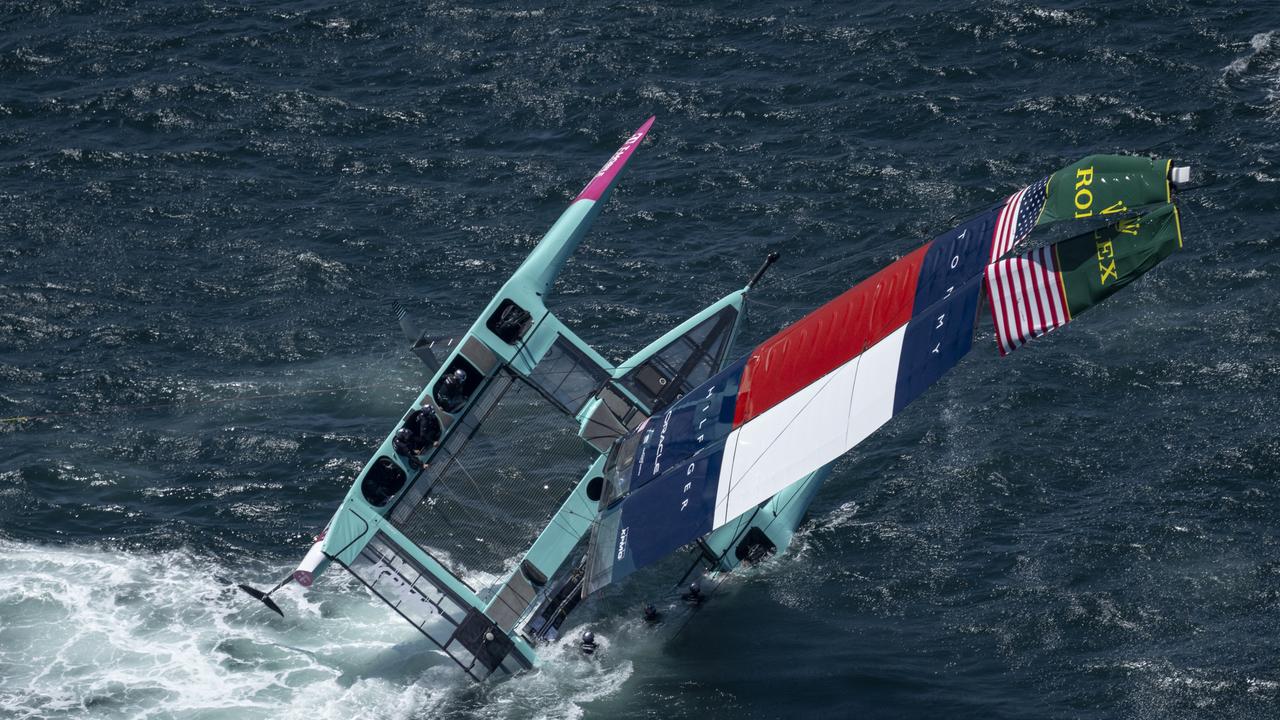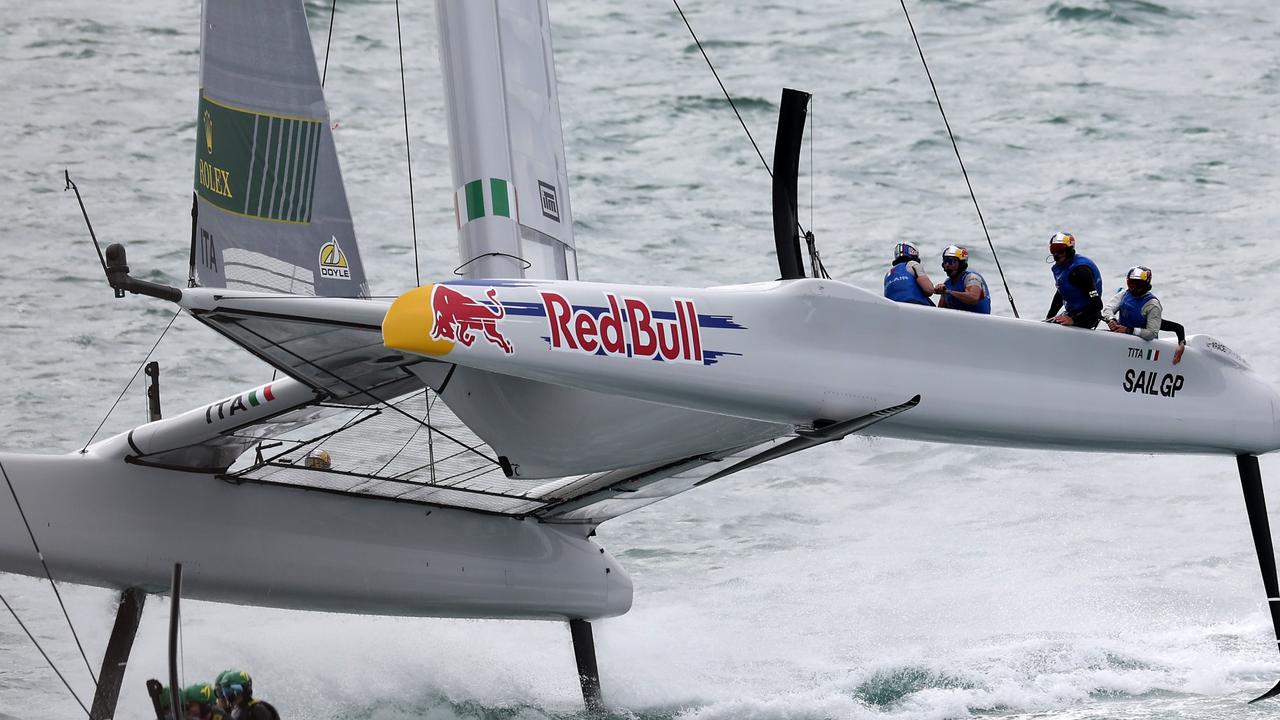Mike Colman pays tributes to the sports stars we lost in 2019
From champions to champions-to-be, the world of sport farewelled some of the greats in 2019. Mike Colman recalls the careers of some of those who left us but will never be forgotten.
Other Sports
Don't miss out on the headlines from Other Sports. Followed categories will be added to My News.
From champions to champions-to-be, colourful identities and those who worked behind the scenes, the world of sport farewelled some of the greats in 2019. Mike Colman recalls the careers of some who left us but will never be forgotten.
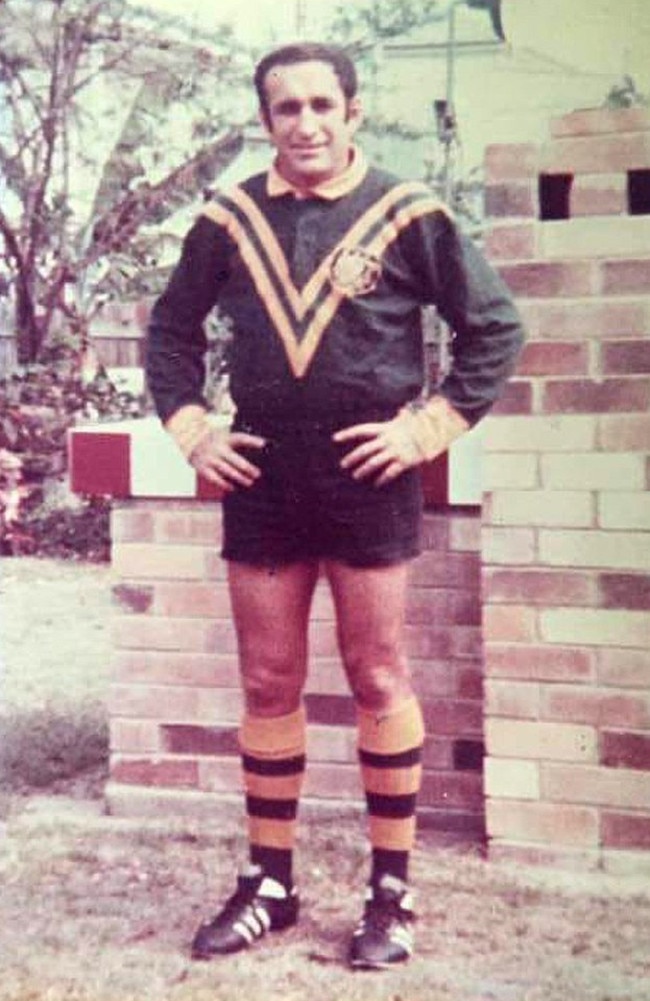
Ray Laird
(February 2, aged 77)
They didn’t come much more competitive than North Queensland rugby league stalwart Ray Laird who captained Queensland from fullback and loved nothing more than getting stuck into the big reputation players from NSW. Originally from Mackay, Laird was chosen from Rockhampton Railways to play his sole Test against Great Britain in 1970, but it was in his 18 games for Queensland between 1963 and 1971 that he really showed what he could do. An inspirational leader who relished the tough stuff, his personal duels with Blues opposite number Graeme Langlands were legendary.
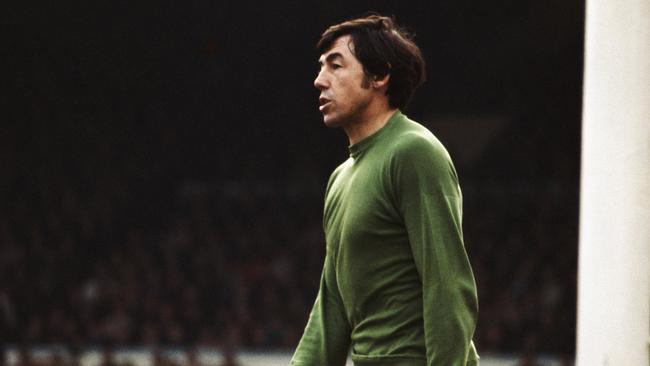
Gordon Banks
(February 12, aged 81)
Credited with pulling off “the greatest save in history” by no less an authority that Pele, whose shot he parried, goalkeeper Gordon Banks played in every match of England’s 1966 World Cup triumph. A veteran of 679 appearances in a 20-year career, he was six times FIFA Goalkeeper of the Year. Banks earned 79 caps for England and made hundreds of memorable saves, none more spectacular than against Brazil in the 1970 World Cup. When Pele headed the ball towards the right-hand side of the goal he was certain he had scored but as it bounced just before the line Banks dived and somehow managed to parry it over the net in what was described as “the save that stopped the world”. Banks died peacefully in his sleep three years after being treated for kidney cancer.
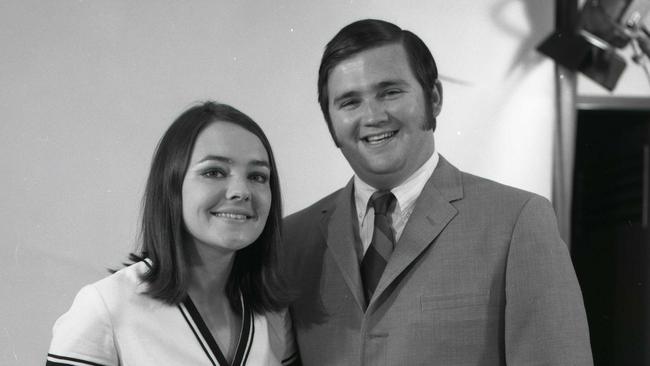
Billy J. Smith
(February 26, aged 73)
A legend in his own and thousands of other’s lunchtimes, Billy J was a longtime Brisbane rugby league caller who became renowned and feared as a quick-witted, acid-tongued compere. Starting his career as a country radio DJ in the 1960s before graduating to rugby league commentary – including calling the first State of Origin in 1980 - he gained national attention in the mid-1980s as host of the TV game show It’s A Knockout. Fittingly he passed away after enjoying a long lunch with friends at Brisbane’s Caxton St.
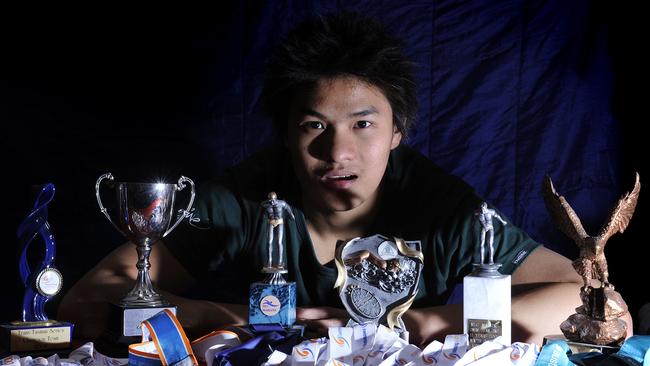
Kenneth To
(March 19, aged 26)
A member of the Australian 4x100m freestyle squad that won gold at the 2014 Commonwealth Games in Glasgow, Kenneth To died in hospital after feeling unwell during a training camp in the US. To moved to Australia with his family from Hong Kong at the age of two and broke Ian Thorpe’s decade-old 16 years 200m individual medley relay in 2009. After competing for Australia at the World Championships in 2011 and 2013 as well as the Commonwealth Games, he switched his allegiance to Hong Kong and was training for Tokyo Olympic selection at the University of Florida when struck down by an apparent heart attack.
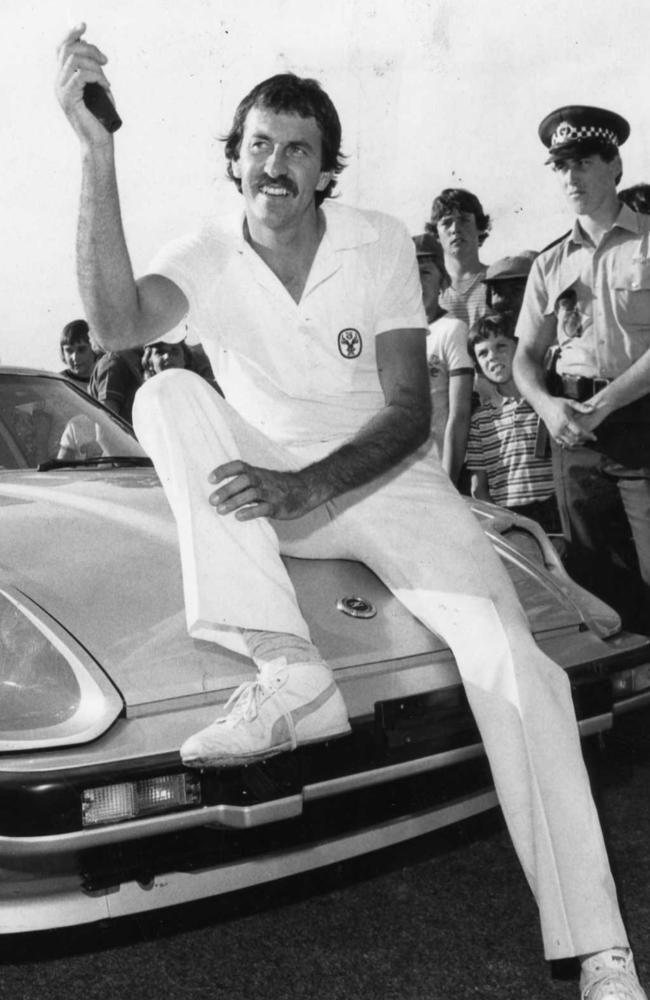
Bruce Yardley
(March 27, aged 71)
West Australian Yardley was Australia’s first-choice spinner in the 1980s and was voted International Cricketer of the Year in 1981-82. A laid-back, fun-loving character nicknamed “Roo” by his teammates, he took 136 wickets in 33 Tests and was a handy lower order batsman who loved to go for the boundary late in an innings. After his playing days were over he turned to coaching, including a stint in change of the Sri Lankan team where he was a major influence on the career of champion spinner Muttiah Muralitharan, reportedly advising him to start bowling his famous “Doosra”. He died after a long struggle with cancer.
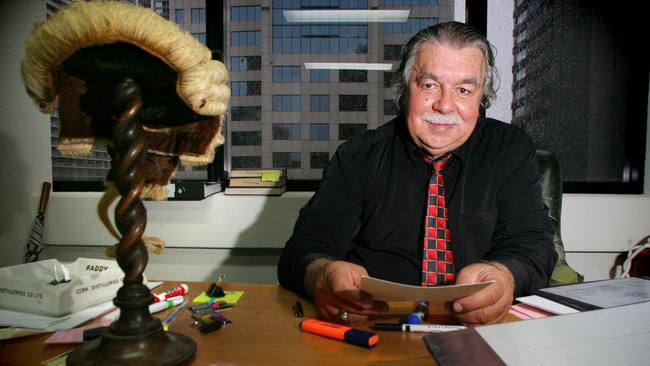
Lloyd McDermott
(April 6, aged 79)
Australia’s first indigenous barrister and second indigenous Wallaby, Lloyd McDermott (tribal name Mullenjaiwakka) did not live in a house until he was 10 years old. Born in Eidsvold, his family moved to Thangool, near Rockhampton and his father scraped together the funds to send him to Brisbane’s Church of England Grammar where he was a champion sprinter and winger in the Churchie 1st XV for three years. McDermott, who died following a heart attack, made his debut for Queensland from the University Club and played two Tests against the All Blacks in 1962 before signing with Wynnum Manly rugby league club. Retiring due to injury he concentrated on his legal career but never stopped helping indigenous youth reach their potential as athletes and people through his Lloyd McDermott Sports Foundation which is now run by fellow Wallaby Gary Ella.
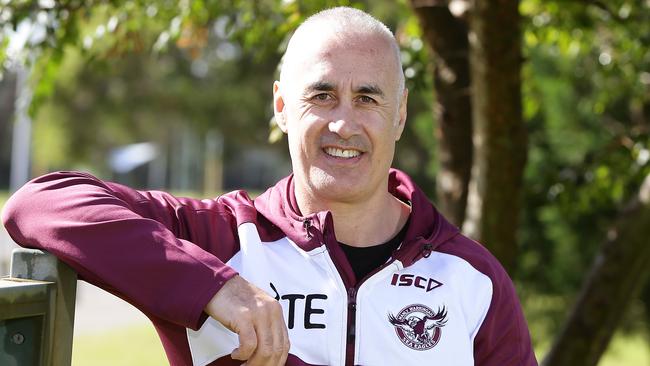
Quentin Pongia
(May 18, aged 48)
One of a standout group of tough rugby league front rowers who plied their trade in the late 1990s and early 2000s, Quentin Pongia was a cornerstone of the Canberra Raiders’ 1994 premiership-winning side. Pongia played 137 first grade games in an NRL career that also included stints with the Warriors, Roosters and Dragons. He played 35 Tests for New Zealand. After ending his playing career with Wigan in the UK Super League he was part of the coaching staff at the Raiders and Sea Eagles. He died after a long battle with cancer.
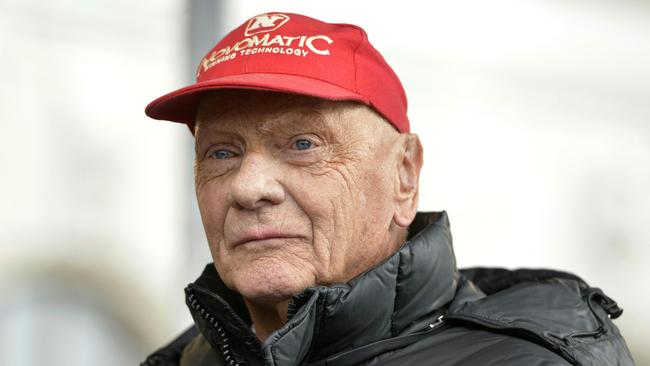
Niki Lauda
(May 20, aged 70)
Regarded as one of the greatest Formula One drivers of all time, three-time world champion Lauda is also remembered for his amazing fortitude in finishing fourth in the 1976 Italian Grand Prix just six weeks after barely surviving a shocking accident during the German Grand Prix at Nurburgring. The only driver to win world titles for both Ferrari and McLaren he later became an aviation entrepreneur before returning to motor racing as a team consultant and part-owner. Died peacefully after long-term lung and kidney problems.
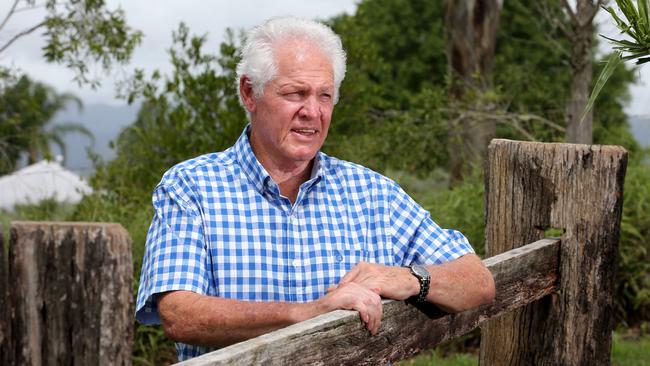
Peter Leis
(July 12, aged 71)
Peter Leis earned the ultimate accolade. Dick “Tosser” Turner rated him the best player ever to represent the Redcliffe Dolphins. From Dayboro, Leis made his first grade debut for Redcliffe against Souths in July 1966. He went on to play 261 first grade games between 1966 and 1981 and is the all-time leading try scorer in first grade with 129 tries to his name. A crowd favourite, even with fans of opposing teams, he played seven times for Queensland and scored, along with Johnny Rhodes, one of the two tries in the 14-8 win over NSW in 1975 – the last before Origin. The Dolphin’s best and fairest award was named after him in 2000 and he and his wife Nerida came down from the family farm in Dayboro to present it each year until poor health intervened in 2018. Their son Trent, also a former Dolphin, now does the honours.
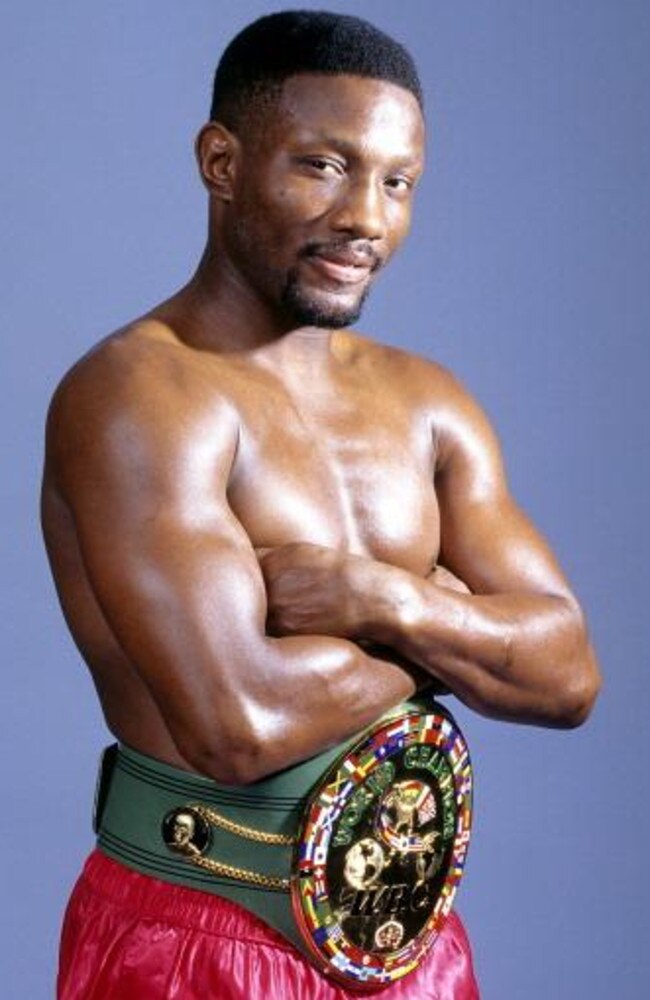
Pernell Whitaker
(July 14, aged 55)
Regarded as one of the greatest defensive fighters of all time, Pernell “Sweet Pea” Whittaker won gold in the lightweight division at the 1984 Olympics before going on to a professional career that saw him win world titles at lightweight, light welterweight, welterweight and light middleweight. In 1989 he was voted Fighter of the Year by The Ring magazine and the Boxing Writers Association of America. On retirement from the ring in 2005 he began a career as a trainer. He was killed when stuck by a car as he crossed the road.
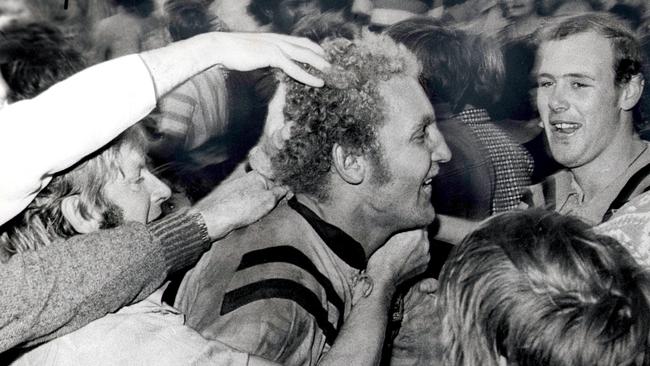
Jeff Fyfe
He played just one game for Queensland and never represented Australia but for a generation of Brisbane rugby league fans Jeff Fyfe will always be as well remembered as any of the all-time greats. And all because of just one kick – the last second field-goal that won Easts Tigers the 1972 Brisbane grand final in a 16-15 thriller over Valleys. Fyfe, the Tigers lock, had never kicked a field goal before in his life but with the scores locked, his more fancied teammates heavily marked and time almost up, he took a chance and slotted over a wobbly one-pointer.
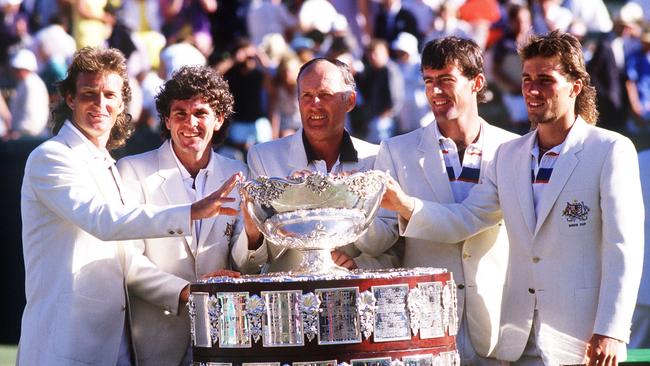
Peter McNamara
(July 20, aged 64)
One half of Australia’s Grand Slam-winning ‘Supermacs’ doubles tennis partnership, Peter McNamara was also a successful singles player and coach. Along with fellow Victorian Paul McNamee, McNamara won the Australian Open doubles in 1979 and Wimbledon in 1980 and ’82 earning a number three world ranking. He also reached the semi-finals of the Australian Open singles in 1980, the quarter-finals at Wimbledon in 1981 and the French Open last eight in 1982. He reached a career high number seven world ranking in singles in 1983. As a coach he worked with Mark Philippoussis, Grigor Dimitrov, Matt Ebden and Wang Qiang. He died from cancer at his home in Germany.
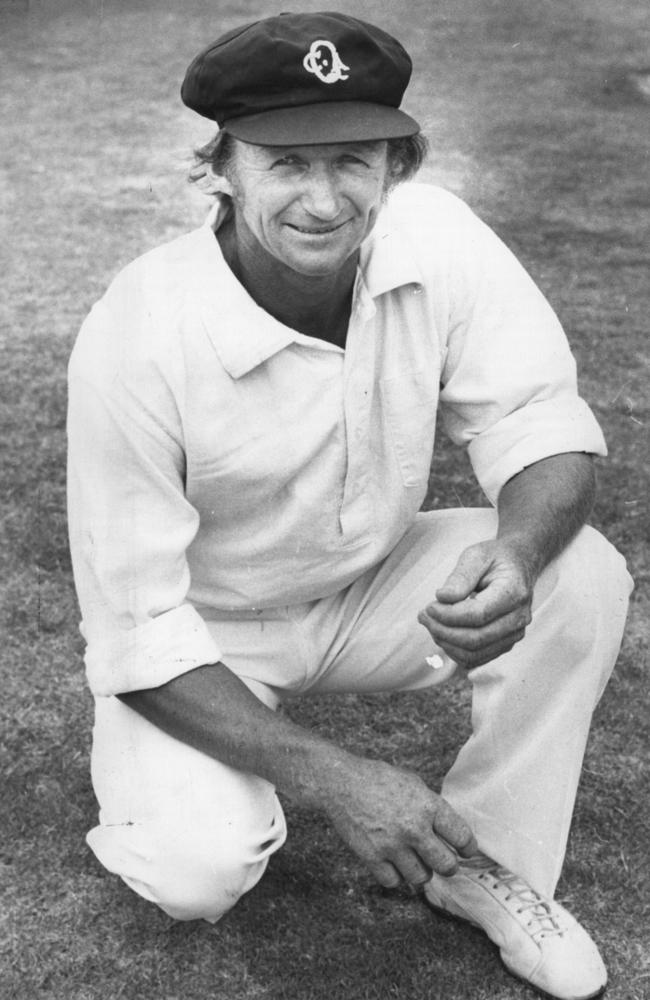
Sam Trimble
The immovable rocks of Bill Lawry and Bob Simpson kept Sam Trimble from opening in a Test for Australia but he batted away his disappointment in a mountain of runs for Queensland. Regarded as one of the best players never to play for Australia in 144 first class matches he scored 10,282 runs at 41.79 with 26 centuries and a highest score of 252. In 1970-71, at the age of 36 he smashed 177 against an MCC attack that included John Snow and Peter Lever. He continued to play club cricket into his 60s and tutored hundreds of young batters in the rudiments of correct technique at his famous Gabba coaching clinics.
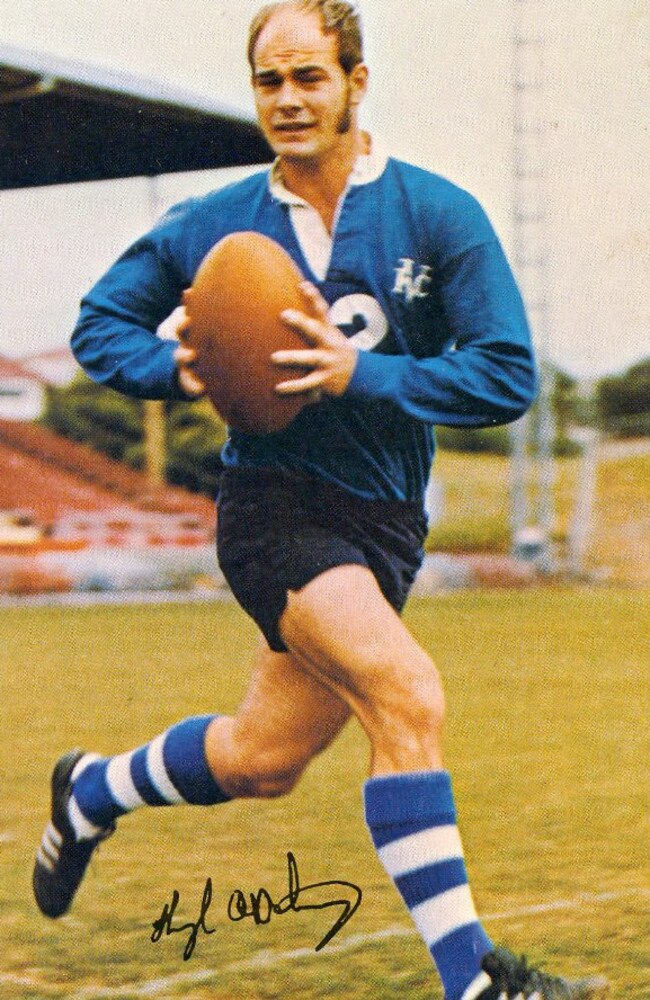
Hugh O’Doherty
At a time when rugby league hookers were actually permitted to win the ball in the scrum or at the play-the-ball, Valleys rake Hugh O’Doherty was one of the best in the business. A grand final winner in 1970, ‘71, ‘73 (in which he scored a try) and ‘74, the Ipswich juniors was known as ‘The Ferret’ for his ability to steal possession away from the opposition with quick footwork. His skill in the set-play was such that in his first interstate game in 1970 he beat NSW Test hooker Elwyn Walters 17-13 in the scrums but it was in the one-on-one strip either in the tackle or play-the-ball that he was a master, regularly winning the ball for his team half a dozen times a game.
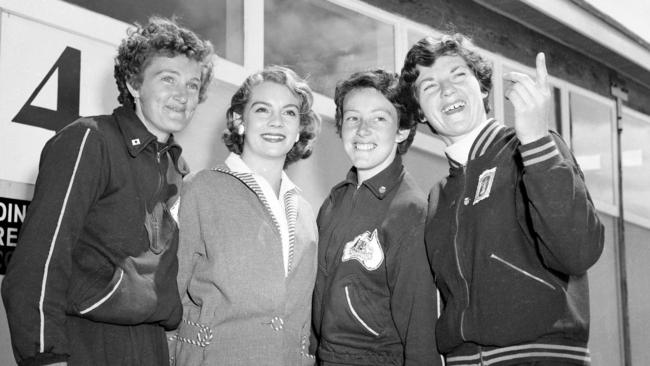
Norma Crocker
Running the second leg of the 4x100m relay Norma Crocker became Queensland’s first Olympic gold medallist when she and teammates Betty Cuthbert, Shirley Strickland and Fleur Mellor beat Great Britain home in world record time at the 1956 Melbourne Games. She finish fourth in the 200m individual event, .2 of a second behind Australia’s Marlene Matthews with Germany’s Christa Stubnick second and Cuthbert first. Competing under her married name of Norma Fleming she missed the final of the 200m by .01 of second at the 1960 Olympics in Rome where the 4x100m relay team was disqualified in the heats. Retiring after those Games she concentrated on her work as a schoolteacher and mother, taking her gold medal to local schools to inspire youngsters for years to come.
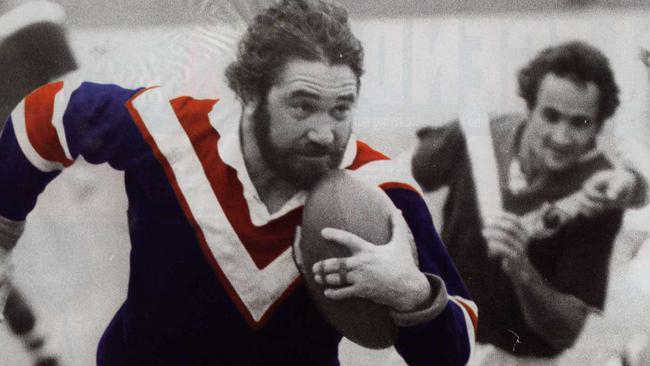
Peter Moscatt
(August 23, aged 76)
An early president of the Rugby League Players’ Association, former Roosters hooker Peter Moscatt was still thinking of his fellow players in his final days. The second former rugby league player (after Steve Folkes) to be diagnosed with chronic traumatic encephalopathy (CTE), the degenerative brain disease commonly linked with repetitive head injury in US sports, he was president of the RLPA in the early 1990s and served as Mayor of Sydney’s Waverly Council. A veteran of 88 first grade matches with the Roosters, including the 1972 grand final, Moscatt specified that his brain be left to the Australian Sports Brain Bank for research into the effects of concussion.
Antoine Hubert
(August 31, aged 22)
One of the most promising drivers on the international motor racing circuit, Antoine Hubert was killed in a Formula 2 race as part of the Belgium Grand Prix meeting at Spa. Racing immediately after the main qualifying for the Formula 1 GP, the Frenchman’s car crashed into the barrier on the Eau Rogue turn during the second lap and then sprung back into the path of the vehicle driven by Ecuador’s Juan Manuel Correa. Hubert’s car was sliced in half and he died in hospital.
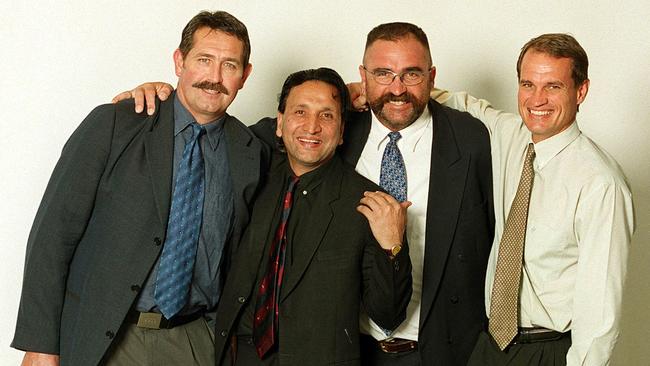
Abdul Qadir
(September 6, aged 63)
Known as ‘The Magician’, Pakistani cricketer Abdul Qadir was an inspiration to a generation of leg-spinners around the world, including Australia’s Shane Warne. Until Qadir’s arrival on the Test scene in the late 1970s, the subtle skill of leg break bowling was a dying art. Qadir changed that, taking 236 wickets in 67 Tests between 1977 and 1990, spinning the ball with the wrist rather than the fingers and leading the way for the likes of countryman Mushtaq Ahmed, India’s Anil Kumble and Warne to follow. Passed away suddenly following a cardiac arrest.
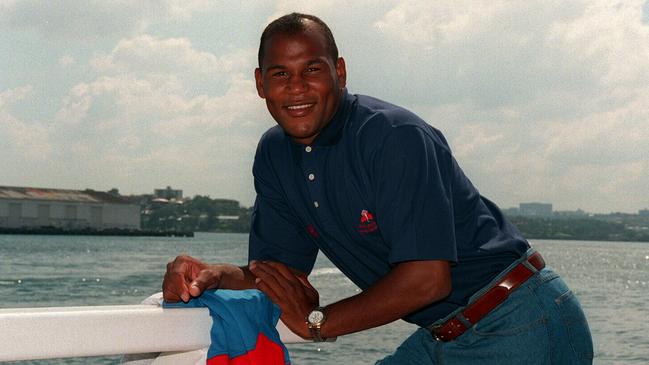
Chester Williams
(September 6, aged 49)
As the only non-white member of the South African team that won the 1995 Rugby World Cup, Springbok winger Williams was seen as a symbol of Nelson Mandela’s “Rainbow Nation”, but for the early part of the tournament it seemed injury would keep him from the field. With his face plastered on advertising hoardings throughout the country and black South Africans urging him to perform, Williams was under enormous pressure that intensified when he was sidelined with a hamstring injury sustained in a lead-up match. He returned in time to score four tries in the quarter final and kept his place for the semi-final and final against New Zealand, won 15-12 by South Africa in extra time. A national hero, he became a coach and public speaker after retiring in 2000. He died of a suspected heart attack.
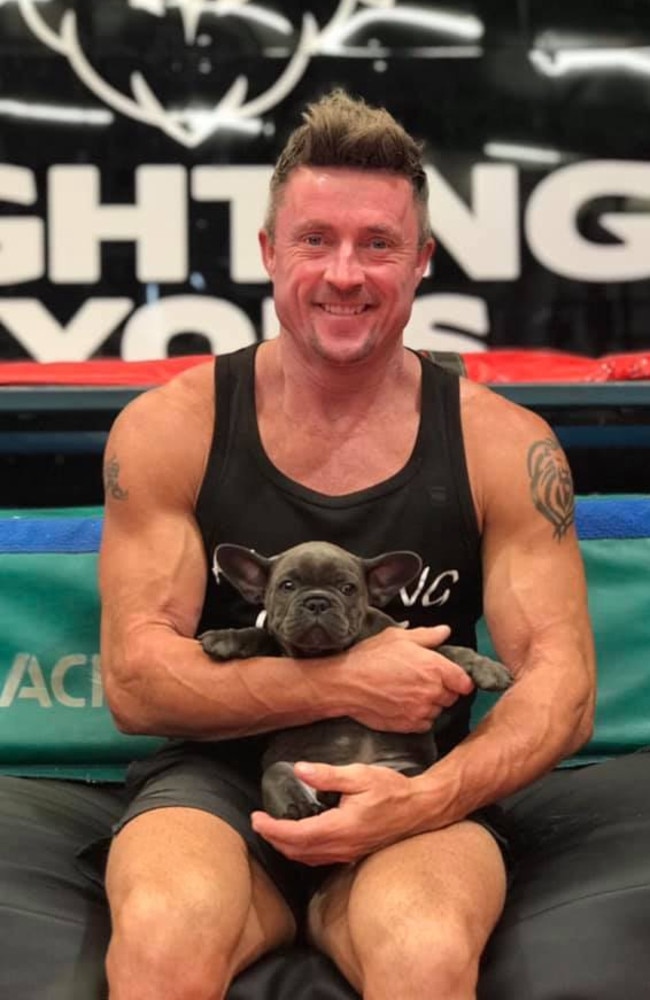
Paul Lyons
(September 8, aged 50)
Two-time Olympian, Ninja Warrior participant and much-loved and respected fitness trainer Paul Lyons died in his sleep of a suspected heart attack. A competitor at Tae Kwando at the Sydney 2000 and Athens 2004 Olympics the Dublin-born, Melbourne-raised Lyons was a fitness inspiration and guru to hundreds of all ages, shapes and sizes through his Fighting Lyons training centre.
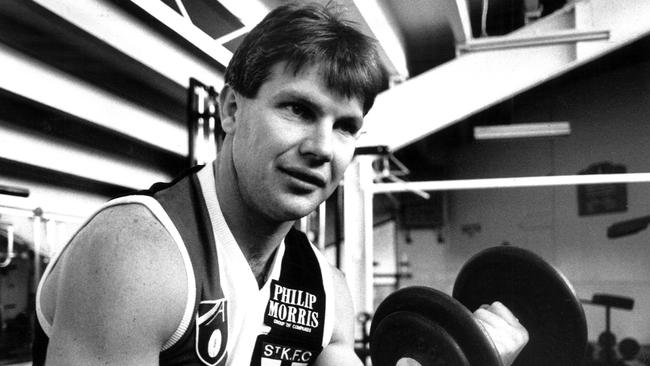
Danny Frawley
(September 9, aged 57)
The much-loved AFL personality captained St Kilda for nine seasons in his 240-game career from 1984-1995 and coached Richmond from 2000-2005. A former chief executive of the AFL Coaches Association he built a successful career as a media commentator on radio and TV thanks to his astute analysis and infectious sense of humour. Frawley, who had battled mental health issues, died when his vehicle hit a tree outside his home town of Millbrook near Ballarat.
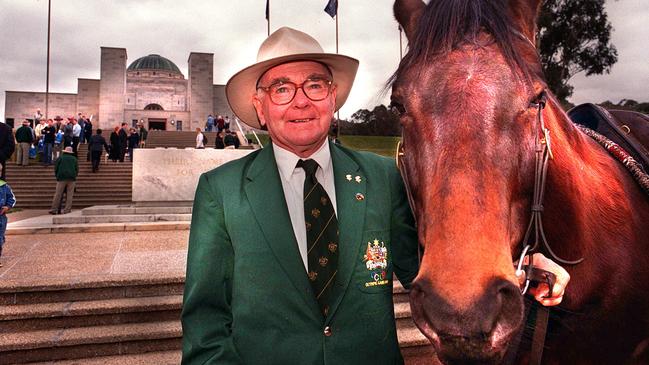
Neale Lavis
(October 6, aged 89)
One of Australia’s greatest horsemen, Neale Lavis was part of the four-man three-day event team that pulled off a remarkable gold medal win at the 1960 Rome Olympics. With teammate Bill Roycroft checking himself out of hospital after a fall the day before and riding with his arm in a sling, Lavis winning the individual silver medal and Laurence Morgan the gold, the Aussies won their country’s first-ever Olympic equestrian medals. Lavis also competed at the 1964 Olympics before retiring to his cattle and horse property at Braidwood where he was involved in the breeding of Melbourne Cup winner Just a Dash and Racehorse of the Year Strawberry Road. A long-time equestrian coach and administrator, he was inducted into the Sport Australia Hall of Fame in 1989.
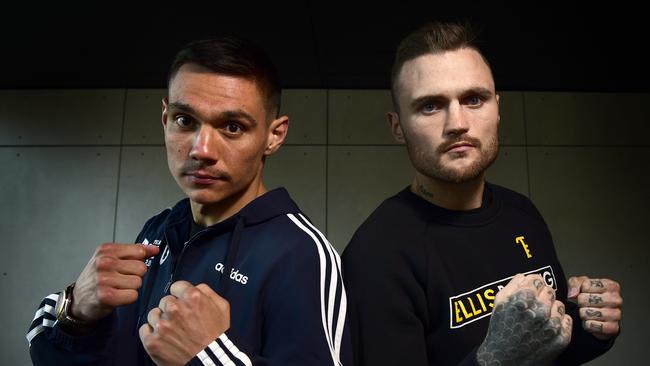
Dwight Ritchie
(November 9, aged 27)
Known as ‘The Fighting Cowboy’, Ritchie died tragically of a suspected heart attack during a sparring session with close friend Michael Zerafa in Victoria. Having lost a points decision in an Australasian super welterweight title fight against Timothy Tszyu in August, Ritchie was training for a fight against Tommy Browne and helping Zerafa prepare for his rematch with Jeff Horn when he was hit in the stomach, collapsed in his corner and could not be revived.
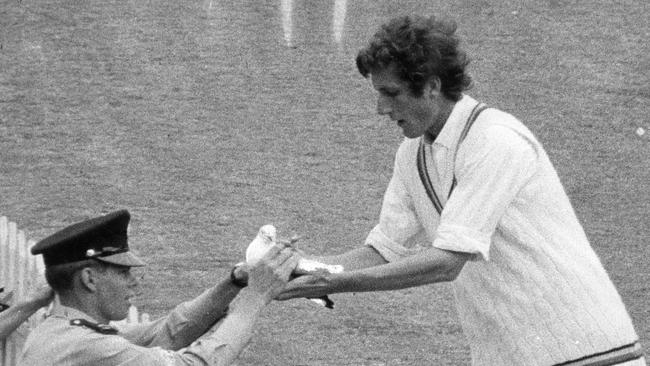
Bob Willis
(December 4, aged 70)
Cricket fans of the late 1970s and 80s will never forget the sight of England’s 198cm fast bowler Bob Willis loping up to the crease, all arms, legs and bouncing hair. The former England captain who took 325 wickets in 90 Tests for his country is best remembered for his amazing performance during Australia’s second innings in the Third Test of the 1981 Ashes series at Headingley. Despite being sent back in by Australian captain Kim Hughes after trailing by 227 on the first innings, England posted a lead of 129 thanks to a brilliant 149 not out by Ian Botham. Willis then tore the shell-shocked Aussies apart, his 8-43 blasting them all out for 111. England won the series 3-1. Following his retirement in 1984 Willis established himself as an insightful and fearless commentator. He died three years after being diagnosed with prostate cancer.
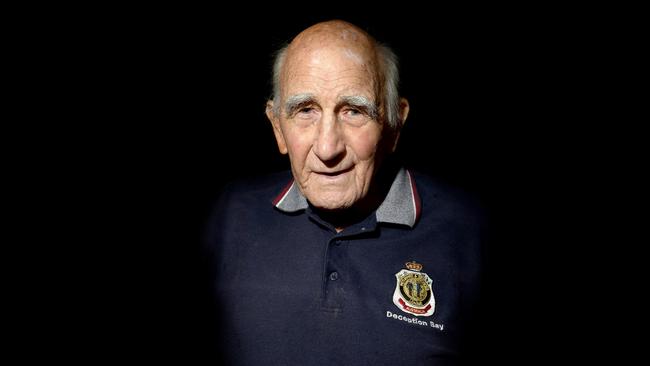
Tom Maule
(December 9, aged 95)
The last surviving member of the first-ever Redcliffe Dolphins rugby league team, Tom Maule was 22 and recently discharged from the navy after seeing service in World War II when he attended the inaugural meeting of the Redcliffe Peninsula Rugby League Football club in February 1947. For many years a committeeman, club treasurer and a lifelong supporter, he played every match in the team’s first season and was the club’s first representative player. He continued to attend Dolphins matches and would visit the club three times a week until his passing.
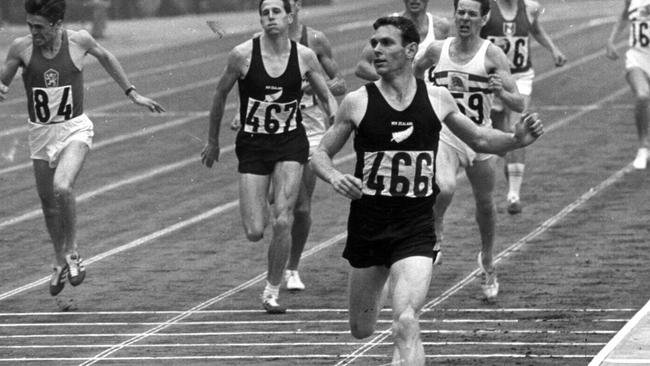
Peter Snell
(December 12, aged 80)
Voted New Zealand’s Greatest Athlete of the 20th Century, middle distance runner Sir Peter Snell had a relatively short career but achieved an incredible amount in that period. Coming to international attention with his win in the 800m final at the 1960 Olympics in Rome, four years later in Tokyo he stunned the athletics world when he became the first athlete since 1920 to win both the 800m and 1500m at the same Olympics. Before retiring after the 1965 season he set five individual world records and was part of New Zealand’s world record-breaking mile relay team. His 800m world record time of 1:44.3 set in Christchurch in 1962 would have won the gold medal at the 2008 Beijing Olympics. He died watching TV at his home in Dallas, Texas.

